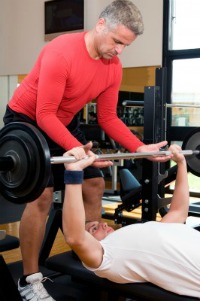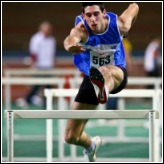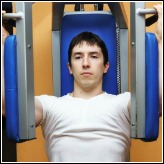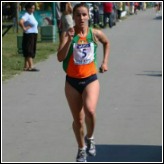Proper Lifting Techniques for Beginners
The first lesson that all trainees need when they enter a gym is to learn the proper lifting techniques.
The most frequent weight training injuries occur due to poor exercise methodology. The right execution of the lifts in weight training is very important if you want the maximum benefits with minimum injuries.
Incorrect weight lifting techniques can tear, strain or pull muscles in the body. Even tears of the delicate connective tissue which covers the muscle can disable the athlete. Another major reason for injury is the lack of control while using dumbbells or barbells.

This is especially true for the beginner or novice athletes who is new to training and want to rush everything.
When beginners start weight training, they must be encouraged to keep the proper form so that unwanted movement does not bring into play other muscle groups to assist the targeted muscle.
This will dampen down the training effect of the exercise and lead to a less than optimum strengthening of the targeted muscle.
Muscle adapt very specifically to the stress or load that is placed on them. When you workout with bad form, your muscles adapt to incorrect movements, which may not be useful when you call on your strength in the competitive arena. Use the tips given below to enhance proper lifting techniques.
Lighten the Load
Never sacrifice technique in order to try to lift heavier weight. If the technique cannot cope the load is too heavy. You should reduce the weight to level where correct technique can be employed. The rule of thumb should always be, if the lifter is a novice, focus on their technique before applying any significant load to the lift.
You can then increase the weight slowly until you feel that you can preserve the weight and keep your form as well. You should keep your movement smooth as any jerky movements can lead to possible injuries.
Finish Reps Safely
Professional bodybuilders usually cheat with their forms in an effort to work their muscles to complete exhaustion. For them the end justifies the means. If your objective in using weights training is more for health, fitness and competitive sports, then it is best not to cheat in your lifting routines. Make sure you respect the integrity of your exercise- if you cannot complete the last rep, it is best to stop at that point.
You should learn how to safely finish a rep if you are unable to accomplish this task on your own. For example, many times, during a bench press, you will see lifters arch their backs during the final rep to get the weight up. When this happens the risk to their lower back is immense. Instead, you should get support from someone to gently assist with lifting of the bar- get your ego out of the way.
Learn how to follow proper lifting techniques. Respect the fundamental motion of the body and try to be a technical perfectionist. No contorting, turning, or twisting should happen as you push or pull weight. Just concentrate on the motion and feel the working of your muscles. If you are nonchalant, preoccupied, or distracted while working out, you will get poor results, and most probably, injury.
A typical session should last for 60-90 minutes. Just focus on the task you are doing presently. More concentration leads to efficient muscle reaction, and thus effective muscle growth. Follow the proper lifting techniques and get the best results.
Sign Up For The Latest Track And Field News And Improve Your Athletic Performance!
From "Proper Lifting Techniques for Beginners" To "Faster, Stronger, Better – Your Shortcut To Improved Athletic Performance"
Learn more about weightlifting techniques.







